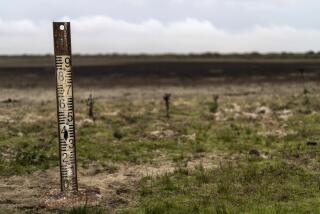Senate Approves Huge Everglades Restoration Plan
- Share via
WASHINGTON — The Senate gave overwhelming approval Monday to what lawmakers called the largest environmental restoration project in history--a $7.8-billion effort expected to take three decades to rescue the Florida Everglades.
The legislation, which must still be taken up by the House, calls for a large federal construction project to restore the historic water flows through the 300-mile-long Everglades ecosystem.
Despite bipartisan support in Congress and the White House’s backing, the measure could still encounter problems in the House with an early October adjournment fast approaching. Supporters are hoping to speed it to the floor in the next two weeks. If passed, the Everglades rescue is likely to be the only major environmental bill to clear the 106th Congress.
The Everglades project was included in legislation that also authorized two dozen various flood control, waterway navigation and environmental restoration projects by the U.S. Army Corps of Engineers, which also will be in charge of the Everglades restoration.
The bill passed 85 to 1.
Environmentalists for years have pushed for a comprehensive, long-term program to repair the damage caused by decades of flood-control efforts that disrupted the Everglades’ natural water flow. An estimated half of the ecosystem already has disappeared.
The Senate legislation would authorize the first $1.4-billion installment of the plan--half of the money coming from the federal government and the rest from state funds.
Sen. Bob Graham (D-Fla.) said that without the “historic” action, “we could lose what is left” of the Everglades ecosystem.
Skeptics have raised concern about the size of the federal commitment. They worried that the estimated $7.8 billion cost estimate could balloon to many times that, especially because some of the projects involve untested technology.
It could become “a giant sucking machine,” Sen. John W. Warner (R-Va.) said during congressional hearings. Sen. James M. Inhofe (R-Okla.), the only senator to vote against the measure, said he worried that the funding “is open-ended.”
Florida earlier approved spending $2 billion over the next 10 years on the project.
More to Read
Sign up for Essential California
The most important California stories and recommendations in your inbox every morning.
You may occasionally receive promotional content from the Los Angeles Times.













